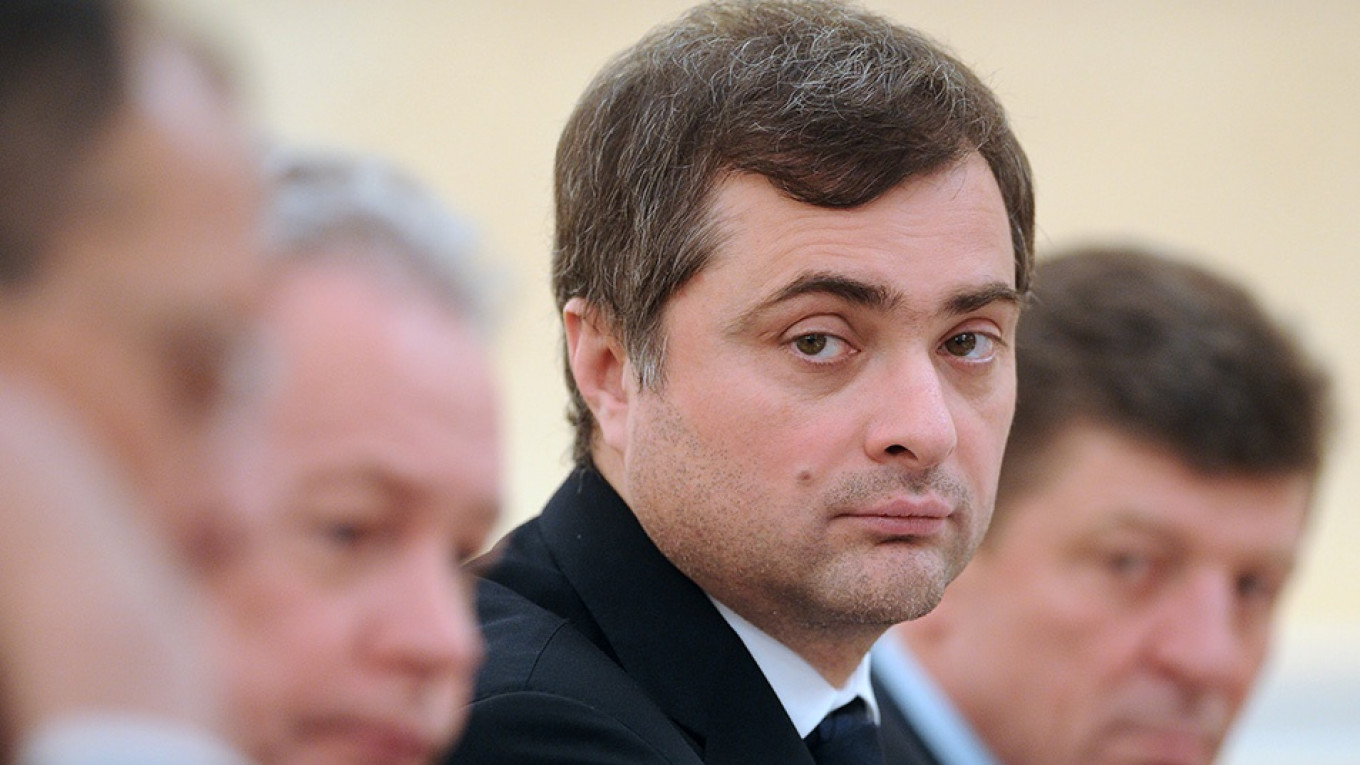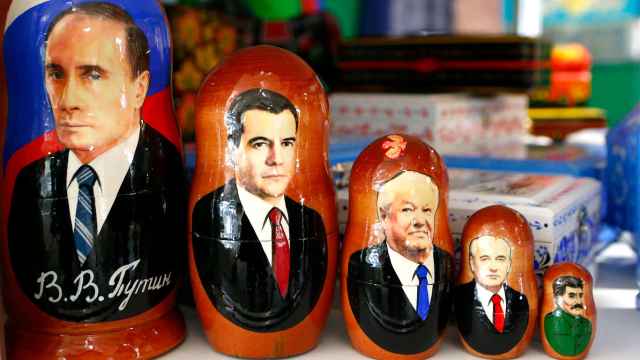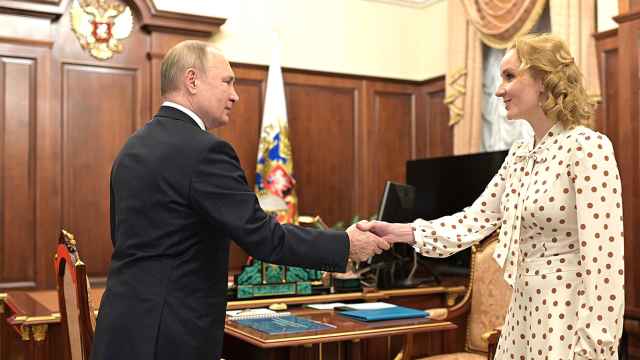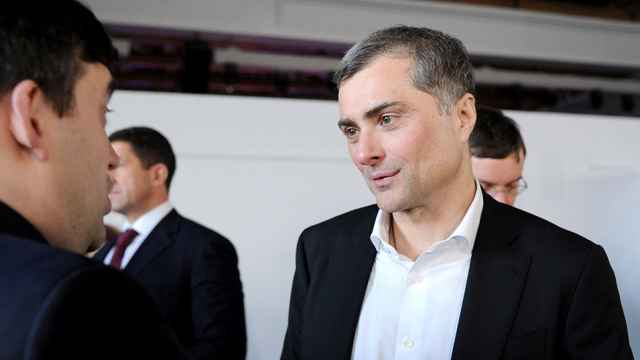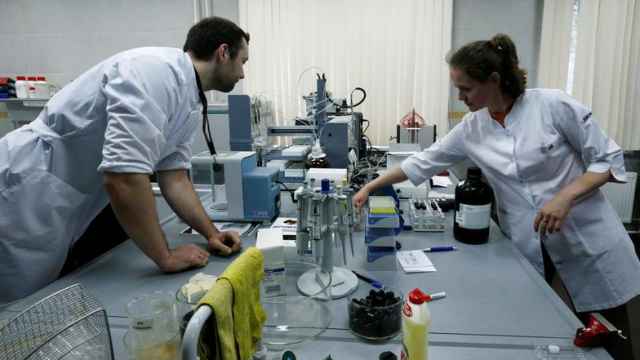Tupac Shakur’s admirer in the presidential administration is at it again. Vladislav Surkov, the man who coined ‘sovereign democracy’ and ‘non-linear war’ is back in the news, with a characteristically philosophical tract in Nezavisimaya Gazeta.
To Sam Greene in these pages, it was just Surkov being Surkov, in his usual role “to get people talking about everything except what’s real” – which means the succession in 2024 rather than more immediate policy concerns. To Leonid Bershidsky, in Bloomberg, it is an expression of the regime’s underlying strength, that “the Putin state with its enforcement bent, expansionist drive, goal of geopolitical greatness and socially conservative impulses” is in tune with the deep needs of the Russian people.
Surkov appears to delight in his role as both Kremlin philosopher and po-mo smartass, but he doesn’t act without reason. He is a busy man, a presidential adviser with apparent overall responsibility for policy over Ukraine, including the undeclared war in the Donbass.
In that role, he has to negotiate razor-toothed factional and jurisdictional disputes between the Kremlin, the presidential administration in Old Square, the FSB and the military.
He is also in that class of high-flyers who lack a strong personal connection with Putin, or a powerful network of allies, clients and patrons. As he already knows to his cost, that leaves him vulnerable to sudden reversals of fortune. He therefore has periodically to demonstrate his value to the Kremlin, and in a way that also proves to his rivals and peers that he is in favour.
With Ukraine likely being a neutral entry in his political ledger, neither a triumph nor currently a disaster, Surkov has indeed turned to the topic that is as central to Moscow political class chatter as it is absent from the official media: the succession, and the potential for life after Putin.
Viewed in this light, Surkov would seem to be beginning to give permission for this sensitive topic to be broached more widely.
More generally, buried within the grandiose rhetoric of his article, Surkov is trying to reassure three important constituencies that the end of the Putin era need not be the end of the world.
To the man himself, the message is that he need not worry. Even once he surrenders power, “for many years Russia will still be Putin’s state,” not least because Putinism is “the ideology of the future.” For a president by all accounts considering his options, mindful of the need to manage a transition in such as way that guarantees the security of his self, his lifestyle, and his legacy, this is all encouraging stuff.
To the system insiders around him, Surkov’s peers and superiors, the people who have much to gain but potentially all to lose from change, the message is that they too need not worry. The “Putin system” can and will endure without its eponymous creator. They need not fall back into the bad ways of Brezhnevism, when a cluster of cronies all but trapped the ailing General Secretary in office, terrified of what would follow.
To everyone else, the Russian masses, the message is, unsurprisingly, that they need not worry, either. Just as the essence of ‘sovereign democracy’ was that it was managed, a facade of politics in front of a cynically rigged process there to maintain and legitimise the status quo, so too they can be reassured that the elites are thinking about the future and preparing to ensure an orderly transition.
Of course, this may not sound like such an appealing prospect, but here Surkov returns to his old theme, that the West is no better. Indeed, it is worse because it is less honest about its oligarchic power and manipulated politics, hence the rise of populism amongst peoples angry with this gulf between the West’s beautiful dreams and ugly realities.
Russia may be run by elites, but at least they are elites who share the same interests as the people.
Or so Surkov says. The point is not the specifics of this flamboyant rhetorical exercise which, as ever with Surkov, is probably too smart for its own good. Rather, that this bellwether of the Kremlin is willing to broach transition in a context the suggests that Putin himself is no longer essential. Bit by bit, he is being turned from a president to a precedent, from hetman to history.
A Message from The Moscow Times:
Dear readers,
We are facing unprecedented challenges. Russia's Prosecutor General's Office has designated The Moscow Times as an "undesirable" organization, criminalizing our work and putting our staff at risk of prosecution. This follows our earlier unjust labeling as a "foreign agent."
These actions are direct attempts to silence independent journalism in Russia. The authorities claim our work "discredits the decisions of the Russian leadership." We see things differently: we strive to provide accurate, unbiased reporting on Russia.
We, the journalists of The Moscow Times, refuse to be silenced. But to continue our work, we need your help.
Your support, no matter how small, makes a world of difference. If you can, please support us monthly starting from just $2. It's quick to set up, and every contribution makes a significant impact.
By supporting The Moscow Times, you're defending open, independent journalism in the face of repression. Thank you for standing with us.
Remind me later.



